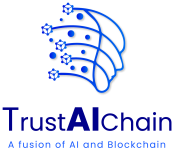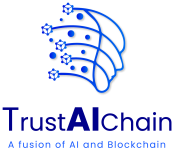The Rise of Blockchain Voting: A Path to Empowerment
Blockchain technology, initially devised for Bitcoin, offers a decentralized ledger that is publicly accessible, inherently resistant to tampering, and can permanently record transactions between two parties efficiently and in a verifiable and permanent way. When applied to voting, blockchain can address many traditional concerns associated with electoral processes, such as electoral fraud, voter disenfranchisement, and transparency.

Benefits of Blockchain in Voting
Enhanced Security: Blockchain’s structure makes it extremely difficult to alter recorded data. Each data block is linked to the previous one, creating an immutable chain without the network’s consensus.
Increased Transparency:With blockchain, every transaction (or vote) is recorded on a public ledger, accessible to all but unchangeable by any single entity, ensuring that the public can audit every step of the voting process.
Accessibility and Convenience: Blockchain voting can be conducted through mobile devices or personal computers, reducing the need for physical polling stations and making it easier for those in remote or underserved areas to participate in elections.
Reduced Costs:By digitizing the voting process, significant resources typically allocated to printing ballots, staffing polling sites, and other administrative tasks can be minimized.
The Role of AI in Enhancing Blockchain Voting
Integrating AI with blockchain voting systems can further enhance the security and efficiency of elections. AI can analyze voting patterns in real-time to detect anomalies that may indicate fraudulent activities. Machine learning algorithms can also manage and secure voter registries and personal identification systems, ensuring that only eligible voters can cast votes.
1. Voter Authentication: AI-powered biometric authentication systems can verify voters’ identities securely, reducing the risk of identity fraud or impersonation in blockchain voting platforms.
2. Data Analysis:AI algorithms can analyze voting data to identify patterns, trends, and anomalies, providing valuable insights for electoral monitoring and auditing purposes.
3. Natural Language Processing (NLP): NLP algorithms can process and analyze unstructured data, such as voter feedback or comments, to extract meaningful insights and improve the responsiveness of elected representatives to citizens’ needs.
4. Predictive Analytics: AI-driven predictive models can forecast voter turnout, sentiment, and preferences, helping policymakers make informed decisions and prioritize issues that resonate with constituents.
5. Detecting Fraud: AI can analyze voting patterns and flag inconsistencies or attempts to manipulate the system, allowing for real-time monitoring and intervention.
6. Ensuring Eligibility:AI-driven systems can manage digital identities, ensuring that votes are cast only by eligible voters. This system reduces the risk of voter fraud and duplicate votes.
7. Streamlining Processing:AI can handle the vast amounts of data involved in elections, processing results faster and with greater accuracy than human counterparts, reducing the time between voting and announcing results.

Case Studies: Blockchain Voting in Action
Several countries have begun to explore blockchain voting, recognizing its potential to enhance the democratic process.
Estonia: As a pioneer in digital governance, Estonia has been experimenting with blockchain technology since 2012. Their e-voting system, although not entirely based on blockchain, incorporates technology elements to enhance security and integrity.
Sierra Leone: In the 2018 presidential election, Sierra Leone used blockchain technology to tally and verify the election results, marking one of the first uses of blockchain in a national election.
South Korea: South Korea has actively tested blockchain-based voting systems to enhance the transparency and reliability of its electoral processes, particularly in non-political community voting settings.
Switzerland: Switzerland has conducted several pilot projects using blockchain technology for voting at the municipal level. In 2018, Zug launched a blockchain-based voting platform called “eID-Blockchain,” allowing residents to participate in referendums and municipal elections securely and transparently.

Uniting Political Parties through Trust and Transparency
One of the most significant impacts of implementing blockchain in voting is the potential to restore trust in the electoral process. The immutability and transparency blockchain provides can assure all political parties that the voting process is fair and free from tampering. This trust can reduce the suspicions and accusations typically associated with elections, fostering a more peaceful and cooperative political environment. When all political parties have faith in the integrity of the electoral process, they are more likely to accept election results and engage in constructive dialogue and collaboration.
Moreover, blockchain-based voting systems can facilitate inclusive and participatory governance, giving citizens from diverse backgrounds and political affiliations a voice in decision-making processes. This inclusivity promotes social cohesion and reduces political polarization, leading to better societal stability and harmony.
In traditional voting systems, trust is placed in the human elements—those conducting and overseeing elections and the mechanisms they use. This trust is often challenged, especially in closely contested scenarios where the stakes are high. Political factions frequently dispute the validity of results, casting doubt on the integrity of the entire electoral process. However, blockchain and AI introduce a “trustless” environment where trust is placed not in individuals or institutions but in the technology itself. Integrating blockchain and AI in voting does more than streamline processes and bolster security, which can unify in politically divisive environments. By removing the doubt linked to human error and manipulation, all parties can have confidence in the electoral process and its outcomes, regardless of their political affiliations.
Blockchain technology enables a trustless system where transactions (in this case, votes) do not require third-party verification but rely on the network’s consensus, which is governed by strict cryptographic rules. This ensures that it cannot be changed once a vote is recorded on a blockchain. This immutability prevents tampering with the vote counts.
All parties can independently verify the recorded votes without relying on a central authority. This transparency ensures that all stakeholders can trust the results without necessarily trusting the actors involved.
Blockchain can employ smart contracts; self-executing contracts with the terms directly written into code—that automatically enforce rules and procedures, from voter eligibility to the closing of polls, ensuring compliance with electoral regulations without human intervention.
With transparent and verifiable results, the grounds for disputes and recounts can be minimized, leading to quicker resolutions and acceptance of results. Trust in the electoral process is crucial for voter turnout. If voters believe their votes will truly count and be counted correctly, they are more likely to participate. Democracies thrive on the confidence of their citizens. A secure and transparent voting process can strengthen the legitimacy of elected officials and the policies they implement.
Trusted electoral systems can pave the way for more than just political stability. They can foster economic growth and social cohesion. Investors and businesses flourish in stable environments where governance is perceived as legitimate and effective. Similarly, when citizens trust their government and its election process, social integration and cohesion improve, reducing the risk of civil unrest.
Economic Implications of Trusted Electoral Systems
A trusted and efficient electoral system can have profound economic implications. First, it can lead to more stable governments, which can better implement long-term economic policies and attract foreign investment. Additionally, the cost savings from using blockchain can be redirected to other critical areas of governance, further stimulating economic development.

Moving Forward
As we look to the future, integrating blockchain and AI in voting systems presents a compelling opportunity to redefine public trust and participation in the democratic process. However, it is crucial to approach this transition with careful consideration of the technological, ethical, and social implications. Ensuring the accessibility of these technologies and safeguarding against potential cybersecurity threats will be vital to realizing the full potential of blockchain voting.
By embracing these technologies, communities can be more empowered, and governance can become more inclusive and accountable. As more countries experiment and implement these tools, we may soon see a new standard for democracy, one more reflective of the technological age in which we live.
In summary, as we venture into the 21st century, the fusion of blockchain and AI in electoral systems stands out as a revolutionary approach. By creating a trustless environment, these technologies can ensure the integrity of elections and foster an atmosphere of trust and transparency. This is not just about making elections easier to manage but about restoring faith in the democratic process, enhancing political stability, and ultimately moving societies forward. As such, blockchain and AI are not merely technological upgrades but keystones of modern democratic governance.







